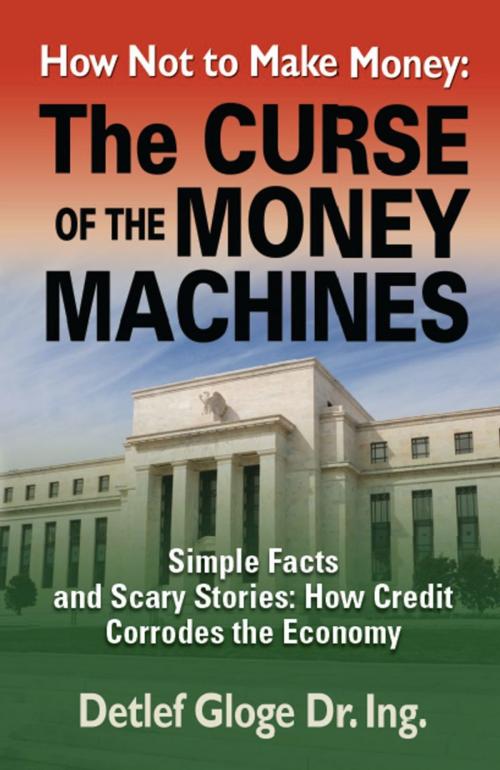HOW NOT TO MAKE MONEY: The Curse of the Money Machines
Business & Finance, Economics, Nonfiction, Reference & Language, Education & Teaching, History| Author: | Detlef Gloge | ISBN: | 9781621415411 |
| Publisher: | BookLocker.com, Inc. | Publication: | October 1, 2012 |
| Imprint: | Language: | English |
| Author: | Detlef Gloge |
| ISBN: | 9781621415411 |
| Publisher: | BookLocker.com, Inc. |
| Publication: | October 1, 2012 |
| Imprint: | |
| Language: | English |
Benjamin Franklin said of the U.S., “We issue our money in proper proportion to the demands of trade and industry.” Today, the stewards of our money tell us they must create more money because easier credit and money will lift people’s “animal spirits.” Is that what they think of our mental capacities? And isn’t there enough money and debt already? Why must they entice people to continue borrowing and speculating?
The book tells stories of people caught in past credit booms and busts from bankrupt kings to despondent borrowers to charlatans exploiting indebted nations. Creating money by way of credit is simple and easy. Everybody’s growing prosperity and wealth is the lure. When trade and industry can no longer support swollen debt loads, money supply shrinks and with it prosperity and wealth. Franklin saw it in Europe: An over-abundance of money corrodes economies and ultimately impoverishes societies.
This is not a complex subject. Everybody can and should understand it to plan for the future. Each of the book’s stories highlights a different way credit affects economic activities: banking, saving, investment, etc. The text surrounding the stories is an easy introduction to economic topics - without math or jargon. High school students will enjoy the book as a class text and grow up financially and economically literate. They will learn to question the soundness of the present management of our money.
The facts, unfortunately, provide convincing evidence that it is time for the U.S. to rethink the functioning of its banking system, which acts as a forth branch of government without proper checks and balances. You want to read the book if you feel responsible for your own and our nation’s affairs and intend to take part in the making and shaping of informed decisions wherever you have a voice.
Benjamin Franklin said of the U.S., “We issue our money in proper proportion to the demands of trade and industry.” Today, the stewards of our money tell us they must create more money because easier credit and money will lift people’s “animal spirits.” Is that what they think of our mental capacities? And isn’t there enough money and debt already? Why must they entice people to continue borrowing and speculating?
The book tells stories of people caught in past credit booms and busts from bankrupt kings to despondent borrowers to charlatans exploiting indebted nations. Creating money by way of credit is simple and easy. Everybody’s growing prosperity and wealth is the lure. When trade and industry can no longer support swollen debt loads, money supply shrinks and with it prosperity and wealth. Franklin saw it in Europe: An over-abundance of money corrodes economies and ultimately impoverishes societies.
This is not a complex subject. Everybody can and should understand it to plan for the future. Each of the book’s stories highlights a different way credit affects economic activities: banking, saving, investment, etc. The text surrounding the stories is an easy introduction to economic topics - without math or jargon. High school students will enjoy the book as a class text and grow up financially and economically literate. They will learn to question the soundness of the present management of our money.
The facts, unfortunately, provide convincing evidence that it is time for the U.S. to rethink the functioning of its banking system, which acts as a forth branch of government without proper checks and balances. You want to read the book if you feel responsible for your own and our nation’s affairs and intend to take part in the making and shaping of informed decisions wherever you have a voice.















